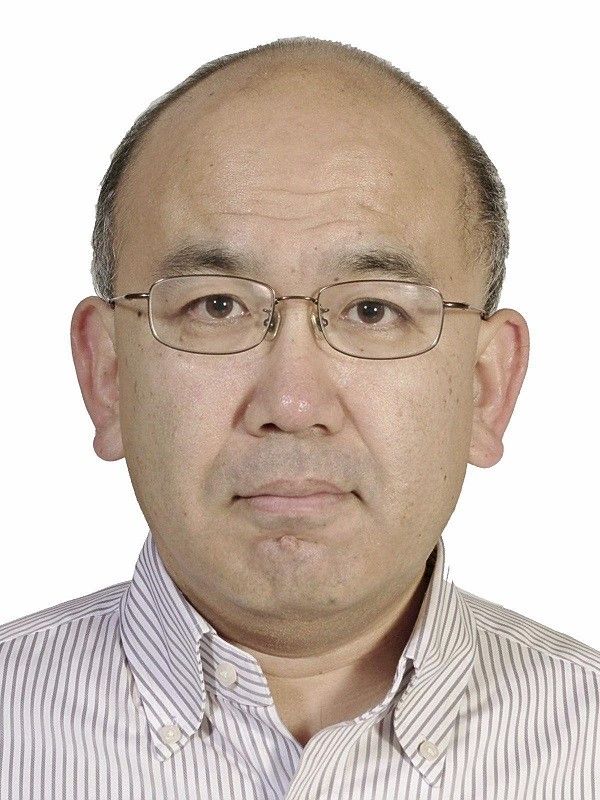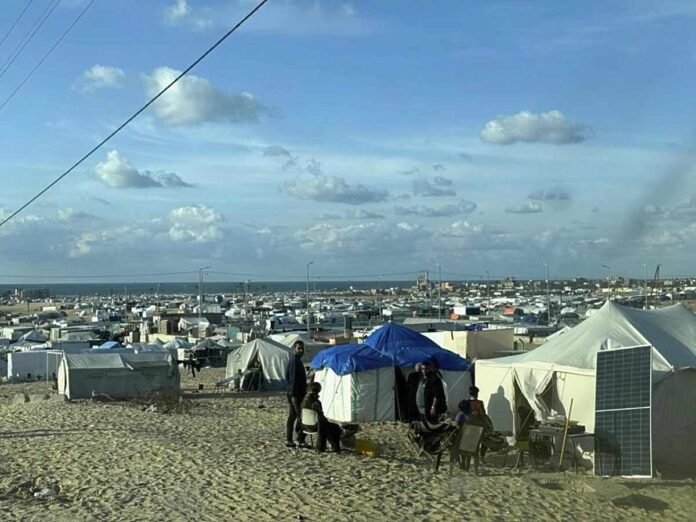A tent village of refugees is seen on Sunday on the coast of Rafah in southern Gaza.
6:00 JST, March 27, 2024
JERUSALEM – The minds of Palestinians in Gaza have passed the breaking point, says Akihiro Seita, the director of the health department of a UN agency who has witnessed first-hand the horrors of the war between Israel and the militant Hamas group in southern Gaza has seen city of Rafa.
“Not only have all the buildings been destroyed, but also the spirit of the people and all hope has been lost,” Seita said in a telephone interview with The Yomiuri Shimbun on Sunday.
Seita, who is based in Jordan, entered Rafah, at the southern tip of the Gaza Strip, via Egypt on March 20, his first time there since fighting between Israel and the Islamist group Hamas began last October.
Seita, the health ministry director of the United Nations Relief and Works Agency for Palestine Refugees in the Near East (UNRWA), had visited Gaza before the war. “It’s a very different scene from the Gaza Strip I saw before,” he said of the current situation.
Open spaces throughout the area are filled with tents for the displaced, and crowds plod through the streets on foot, he said.
Seita is accompanied by a number of staff deployed to provide support to UNRWA health centers and shelters. “All Gazans are exhausted,” he said. “They need a ceasefire and a good night’s sleep.”
Seita plans to remain in the area and, as she continues to assess the situation through early April, explore ways the organization can provide assistance.
“We are continuing our relief efforts, but the aid we are sending is just a drop in the ocean,” Seita said.
Noting the humanitarian crisis in which the spread of infectious diseases is fueled by shortages of food and medicine, he appealed to the international community to establish a ceasefire and begin much-needed reconstruction of the area .
Living from day to day
Seita made the rounds to UNRWA-run health centers and displaced persons camps, speaking with staff and gaining a better understanding of the severity of the situation.
An old acquaintance, a health center worker in his forties who had been evacuated to Rafah from Gaza City in the north, told him that everything had been destroyed, even his soul. He added that he could only live for this moment, not knowing what tomorrow will bring.
Seita said he heard similar feelings of being “broken inside” from many residents. Nearly six months after the start of the fighting, he has come to realize that “everyone is exhausted, broken in spirit, bewildered and living from day to day.”
The Israeli army is currently poised to launch a full-scale invasion of Rafah, where approximately 1.5 million Gazans have taken refuge.
There are still buildings standing in Rafah, compared to northern Gaza and the southern city of Khan Younis, but Israeli airstrikes continue. There is no longer a safe place in Gaza.
One shelter to another
Seita told the sad story of a 29-year-old doctor at a health center in Rafah who fled Gaza City there last October with her dentist husband and their children, ages 1 and 3.
The family has changed accommodation twelve times and once slept on the street for three days. Now they camp in a corner of the health center.
Her husband planned to open his own dental clinic in Gaza City and borrowed money to buy expensive equipment. But fate dealt him a devastating blow: a day before the clinic was to open on October 8, war broke out. Both the clinic and their home were destroyed.
Seita said the doctor burst into tears as she remembered the tragedy, and she worried about what the future held for her family.
Water rations
About 40,000 people have taken refuge in the classrooms and playgrounds of UNRWA-run schools.
They depend on aid packages for food, and drinking water rationing provides only 500 milliliters per person per day. There are only 16 toilets, one for every 2,500 people.
Contaminated water has caused an outbreak of hepatitis A and some children are showing symptoms of jaundice. About one in ten children suffer from malnutrition.
UNRWA’s health approach focuses on efforts to prevent the spread of disease, supplement nutrition and provide mental health care.
“No human being should ever be oppressed like this,” Seita said. “It is the responsibility of the international community to rebuild a society in which the people of Gaza can live safely and securely.”

Akihiro Seita
Akihiro Seita, 63, is a doctor who specializes in infectious diseases. He previously worked for the World Health Organization for about 15 years, working on tuberculosis and other infectious diseases. He assumed his current position in 2010.



